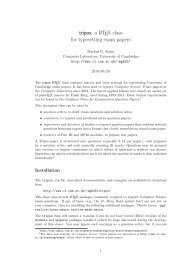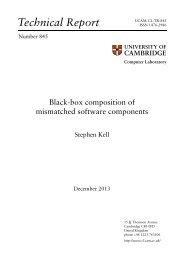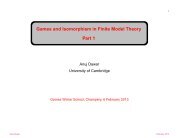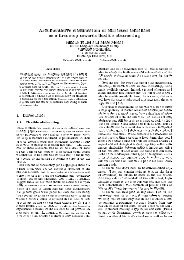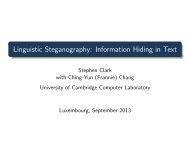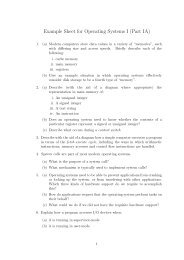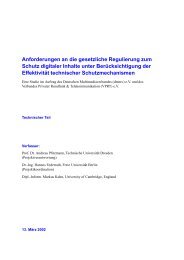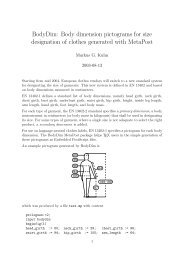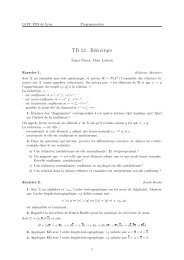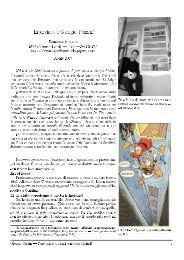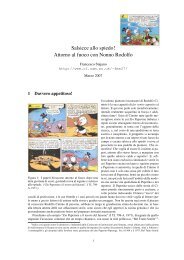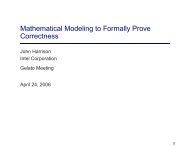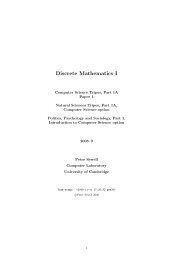Radical innovation: crossing knowledge boundaries with ...
Radical innovation: crossing knowledge boundaries with ...
Radical innovation: crossing knowledge boundaries with ...
Create successful ePaper yourself
Turn your PDF publications into a flip-book with our unique Google optimized e-Paper software.
intellectual approaches. It is not clear, however, that such <strong>innovation</strong>s necessarily<br />
cross disciplinary <strong>boundaries</strong> themselves. A ‘land-grab’ may result in the description<br />
of a phenomenon as belonging to a particular discipline, which then retains the<br />
resulting rights of investigation and description. One of our expert witnesses who is a<br />
leader in the currently popular field of nanotechnology noted the dangers of such a<br />
land grab for his own work, by describing how chemistry or physics would cast<br />
different but equally constraining perspectives if nanotechnology is classified <strong>with</strong>in<br />
either discipline. Once those constraints are in place, no matter how tacitly applied,<br />
the opportunities for radical <strong>innovation</strong> seem likely to be reduced.<br />
Problems may therefore be more mobile than theories, but this is only likely if they<br />
originate outside of the university (in industry for example), and if the person bringing<br />
the problem is also open to the possibility that it might become an object of attention<br />
from people wishing to describe it differently. Once constraints on those dynamics are<br />
in place, no matter how tacitly applied, the opportunities for radical <strong>innovation</strong> seem<br />
likely to be reduced. Nevertheless, a need for <strong>innovation</strong> can result from abrupt<br />
change (among our expert witnesses, Stephen Allott described his legal response to a<br />
sudden change of scale in the volume of sales contracts being processed at his<br />
company, such that the previous team structure was no longer effective) 8 . Creative<br />
individuals may welcome the constraints that are associated <strong>with</strong> a specific problem,<br />
as these demand new responses, preventing established routine approaches.<br />
Novel problem-derived constraints can potentially be of any kind, although once<br />
again, disciplines have a tendency to define and establish ownership of their own<br />
particular kinds of constraint, just as much as they own their specific methods and<br />
explanatory frameworks. Individual researchers embrace the exploration of<br />
phenomena that are new (e.g. nanotechnology) or that are believed to have new<br />
implications (e.g. digital technology for society). In these cases the individuals need<br />
to find institutional or working vehicles that enable them to span the typical<br />
constraints of working <strong>with</strong>in a given discipline. Rodden 9 and Baumberg 10 exemplify<br />
different routes <strong>with</strong>in the range of UK approaches to funding interdisciplinary<br />
academic initiatives, but in each case they needed to establish the legitimacy of their<br />
approach relative to their home disciplines.<br />
The greatest advances in research, those that are celebrated in the media and become<br />
the target of public investment, are described as ‘breakthroughs’. This word offers a<br />
clear metaphor that some kind of boundary must be crossed. A scientific<br />
‘breakthrough’ involves the removal of a boundary that limits <strong>knowledge</strong>. However,<br />
as we have noted, these limiting <strong>boundaries</strong> have an essential function: they define the<br />
extent and limits of <strong>knowledge</strong> in a discipline. The spatial metaphor of a disciplinary<br />
boundary encourages us to think that breakthroughs will happen at the edge of a<br />
8 Expert witness report<br />
9 Expert witness report<br />
10 Expert witness report<br />
Innovation and Interdisciplinarity 29



